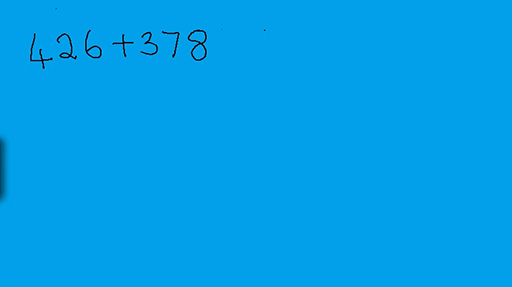3.1 Formal written methods of addition
Of the four basic arithmetic operations, the addition of whole numbers and associated written methods of addition tend to be reasonably well grasped. It is the other three operations where learners have difficulties.
Activity _unit2.3.1 Activity 7 Reflecting on two methods for adding three-digit numbers
Watch Video 3 on formal written methods and then reflect on the difficulties a learner might experience when using either of these methods.

Transcript: Video 3 Demonstrating formal written methods for addition
Discussion
If learners have developed mental calculation skills then these will be built on when moving to written addition methods. If learners have not developed good mental calculation skills, using written methods will be much more difficult.
If you think back to the early years, remember that learners operate addition by counting out the sets of objects and then combining the sets. If they have not progressed from this stage to being able to add up abstract numbers mentally then adding large numbers using a written method will be cumbersome.
A learner who struggles to add 6 + 8 and who uses their fingers or makes marks on paper (and I have seen both these activities used by secondary school pupils) will struggle to add 60 + 80. If they only operate addition by counting sets of objects then they are unlikely to have developed a robust concept of place value and therefore no appreciation that 6 tens + 8 tens gives us 14 tens. This is why it is so important that learners build a firm foundation of understanding in the early years. It also implies that expecting learners to move on to the next stage (e.g. of doing formal written addition before they can mentally add abstract numbers) is not appropriate. As a teacher, you may need to ‘go back to basics’ with learners who are in this position.
